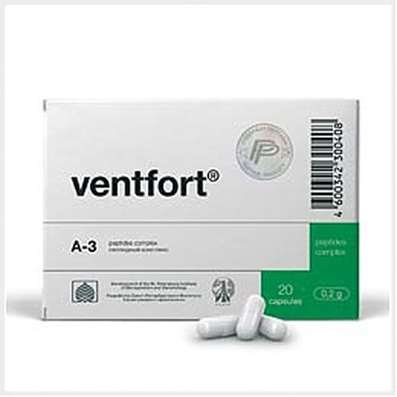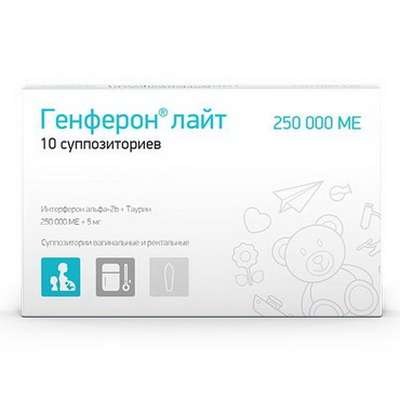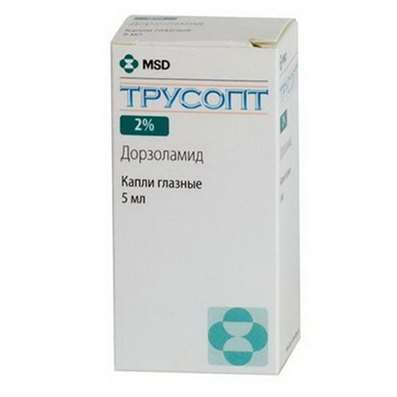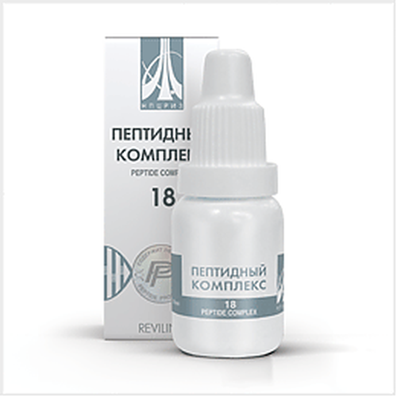Instruction for use: Elocom
I want this, give me price
Active substance Mometasone
ATX Code D07AC13 Mometasone
Pharmacological group
Glucocorticosteroid for topical use [Glucocorticosteroids]
Nosological classification (ICD-10)
L20 Atopic dermatitis
Itchy atopic eczema, Common neurodermatitis, Allergic skin diseases, Allergic skin diseases of non-infectious etiology, Allergic skin diseases of non-microbial etiology, Allergic skin diseases, Allergic skin lesions, Allergic manifestations on the skin, Allergic dermatitis, Allergic diathesis, Allergic itching dermatosis, Allergic Skin Disease, Allergic skin irritation, Dermatitis allergic, Atopic dermatitis, Dermatosis allergic, Diathesis exudative, Skin Allergic Disease, Skin allergic reaction to medicinal and chemical preparations, Skin reaction to medication, Skin and allergic disease, Acute eczema, Chronic atopic dermatitis, Exudative diathesis, Itching allergic dermatosis
L21 Seborrheic dermatitis
Dermatitis seborrheic, Increased sebum separation, Seborrheic Eczema, Seborrheic dermatitis of the scalp, Seborrheic pyodermatitis, Seborrhea, Eczema seborrheic
L23 Allergic contact dermatitis
Allergic dermatitis, Purulent allergic dermatopathies, Contact allergic reaction, Contact allergic dermatitis, Photoallergic contact dermatitis
L28 Simple chronic lichen and prurigo
Scab, Prurigo, Bacterial prurigo, Limited prurigo with a strong lichenization, Nodular pruritis
L29 Itching
Itching with partial obstruction of the biliary tract, Dermatitis itchy, Dermatosis with persistent itching, Other itching dermatoses, Itching dermatoses, Itching allergic dermatosis, Itching dermatitis, Itching itch, Excruciating itching, Severe itching, Endogenous itching, Skin itching with dermatosis, Limited itching dermatitis, Itching of the skin, Itchy scalp, Itching eczema
L30.1 Dyshidrosis [pomfolix]
Skin dyshidrosis, Pomfolix, Eczema dysgidrotic, Dyshidrotic eczema, Infected dyshidrosis, Dyshidrosis, Dyshidrotic dermatitis
L40 Psoriasis
Chronic psoriasis with diffuse plaques, Generalized psoriasis, Psoriasis of the scalp, Psoriasis of the scalp, Generalized form of psoriasis, Psoriasis dermatitis, Psoriasis complicated by erythroderma, Invalidative psoriasis, Isolated psoriatic plaque, Exfoliative psoriasis, Psoriatic Erythroderma, Psoriasis with eczematosis, Hyperkeratosis in psoriasis,Inverse psoriasis,Psoriasis eczematous, Dermatosis of psoriasis, Psoriasis of the genitals, Psoriasis with lesions of hairy areas of skin, Erythrodermal psoriasis, Chronic psoriasis of the scalp, Chronic psoriasis, Ordinary psoriasis, Refractory psoriasis, Kebner phenomenon, Scaly lichen
L43 Red Leaf Flat
Lishay Wilson, Erosive-ulcerative form of red flat lichen, Warty forms of red lichen, Red lichen, Flat lichen, Kebner phenomenon
L56.2 Photocontact dermatitis [berloque dermatitis]
Photoallergic contact dermatitis
L56.3 Solar Urticaria
Skin irritation after sun exposure, Sun Dermatitis, Dermatitis sunflower
L58 Radiation dermatitis radiation
Radiation injury of the skin, Radiation skin lesions, Radiation damage to the skin and mucous membranes, Skin lesion with radiation therapy, Irritation after exposure to X-rays, Radiation damage to the skin, Radio-epileleitis, Radiation acute syndrome
Composition and form of output
ElcomŪ
Cream 1 g
Mometasone furoate 1 mg
Auxiliary substances: hexylene glycol; phosphoric acid; Propylene glycol stearate; Stearyl alcohol; Cetyl stearyl ether; Ceteareth-20; Titanium dioxide; Aluminum octenyl succinate derived from starch; White wax; White petrolatum; purified water
In tubes of 15 g; In a carton box 1 tube.
Ointment 1 g
Mometasone furoate 1 mg
Auxiliary substances: hexylene glycol; phosphoric acid; Propylene glycol stearate; White wax; White petrolatum; purified water
In tubes of 15 g; In a carton box 1 tube.
Lotion 1 ml
Mometasone furoate 1 mg
Auxiliary substances: 40% isopropyl alcohol; Propylene glycol; Hydroxypropyl cellulose; Sodium phosphate; water. It can also contain phosphoric acid and sodium hydroxide to establish a pH value of about 4.5
In bottles of 20 ml; In a carton box 1 bottle.
ElcomŪ Lotion
Lotion 1 ml
Mometasone furoate 1 mg
Auxiliary substances: 40% isopropyl alcohol; Propylene glycol; Hydroxypropyl cellulose; Sodium dihydrogen phosphate dihydrate; purified water; Phosphoric acid or sodium hydroxide (to establish a pH of about 3.5-5.5)
Bottles-droppers PE on 20 ml; In a carton box 1 bottle.
pharmachologic effect
Pharmacological action - anti-inflammatory, antipruritic, antiexudative.
The mechanism of action appears to be associated with inducing the release of proteins inhibiting phospholipase A2 and known under the general name lipocortins. These proteins are supposed to control the biosynthesis of such potent inflammatory mediators as PG and LT, by inhibiting the release of their common precursor, arachidonic acid.
Carcinogenesis, Mutagenesis. In studies of the genetic toxicity of mometasone furoate, including the Ames trial, a mouse lymphoma test and a micronucleus test, no evidence of a mutagenic effect of the drug was found.
Long-term animal experiments aimed at evaluating the carcinogenic effect of the drug were not carried out.
Pharmacokinetics
The degree of penetration of topical glucocorticosteroids through the skin depends on many factors, including the composition of the preparation and the integrity of the epidermal barrier. Inflammations and other processes occurring in the skin can lead to increased penetration of the drug through the skin. With a single local application on undamaged skin (without occlusive dressing), approximately 0.7% of the dose of ointment and about 0.4% of the cream are detected in the blood after 8 hours. There is reason to believe that the level of glucocorticosteroid absorption in the lotion dosage form is also negligible.
Indications
Weakening and elimination of inflammation and itching in dermatoses that respond to glucocorticosteroid therapy in adults and children aged 2 years.
Contraindications
Hypersensitivity.
pregnancy and lactation
Adequate, well-controlled studies of the teratogenic potential of mometasone furoate when used during pregnancy have not been conducted. The use of Elom's cream, ointment or lotion during pregnancy is possible only if the expected benefit in treatment for the mother will outweigh the potential risk to the fetus.
With systemic use of glucocorticosteroids appear in breast milk, which can lead to a slowing of the growth of the child, the effect on the endogenous synthesis of glucocorticosteroids and other adverse effects. Data that systemic absorption of glucocorticosteroids in topical application can lead to the appearance of their detectable amounts in breast milk is not available. However, due to the fact that many drugs are excreted in breast milk, nursing women should use cream, ointment, Elcom lotion with caution.
Side effects
Cream. In controlled clinical trials in 319 patients, the incidence of adverse events associated with the use of Elcom cream was 1.6%. There was burning, itching, skin atrophy; There were reports of the appearance of rosacea. In controlled clinical trials on children aged 2 to 12 years (n = 74), the incidence of adverse events (burning, itching, furunculosis) associated with the use of the cream was approximately 7%.
Ointment. In controlled clinical trials in 812 patients, the incidence of adverse events associated with Elocom's ointment was 4.8%. There were burning, tingling, itching, skin atrophy, furunculosis; There were reports of the appearance of rosacea. In controlled clinical trials on children aged 2 to 12 years (n = 74), the incidence of adverse events (burning, itching, furunculosis) associated with the use of ointment was approximately 7%.
Lotion. In clinical trials, the following adverse events were noted in 209 patients: burning (4 cases), acne (2 cases), pruritus (1 case). In the study of increased / morbid sensitivity on 156 healthy volunteers, the onset of folliculitis was noted (4 cases).
With topical application of glucocorticosteroid drugs, the following undesirable events can rarely occur in order of decreasing incidence: skin irritation and dryness, folliculitis, hypertrichosis, acne, hypopigmentation, perioral dermatitis, allergic contact dermatitis, skin maceration, secondary infection, striae and sweating. The probability of occurrence of the listed undesirable phenomena increases at application of occlusive dressings.
Interaction
No relevant data are available.
Dosing and Administration
Locally.
ElcomŪ
Cream or ointment is applied a thin layer on the affected skin areas 1 time per day.
Lotion - apply a few drops on the affected areas of the skin 1 time per day; After applying the lotion rub softly until it disappears from the surface of the skin. For the most effective and economical use of the drug, it is necessary to bring the nose of the bottle closer to the affected area of the skin and slightly squeeze the bottle.
ElcomŪ Lotion
Lotion - apply a few drops on the affected areas of the skin 1 time per day; After applying the lotion rub softly until it disappears from the surface of the skin. For the most effective and economical use of the drug, it is necessary to bring the nose of the bottle closer to the affected area of the skin and slightly squeeze the bottle.
The duration of the course of treatment is determined by its effectiveness, as well as the patient's tolerance, the presence and severity of side effects.
Overdose
When topical application in large doses, absorption of the drug in quantities sufficient for manifesting systemic side effects is possible.
Precautionary measures
Cream, ointment, Elcom lotion are indicated only for dermatological use and are not intended for use in ophthalmology.
As a result of systemic absorption, local application of various glucocorticosteroid drugs may lead to reversible suppression of the hypothalamic-pituitary-adrenal system function, as well as symptoms of glucocorticosteroid insufficiency after drug withdrawal. In patients, as a result of systemic absorption of glucocorticosteroids in systemic application, Cushing's syndrome, hyperglycemia and glucosuria may also develop.
Patients receiving topical glucocorticosteroids for the treatment of large areas of the skin or under occlusive dressings should periodically be tested for signs of suppression of the hypothalamic-pituitary-adrenal system function. This test can be performed by performing an ACTH test (adrenocorticotropic hormone) -stimulation, measuring the morning cortisol content in plasma and in other media other than urine. In the event that oppression of the hypothalamic-pituitary-adrenal system is noted, the interval between applications should be increased or another less potent glucocorticosteroid should be used, or the drug should be withdrawn. Restoration of the hypothalamic-pituitary-adrenal system usually occurs shortly after the abolition of local glucocorticosteroids. Sometimes signs and symptoms of glucocorticosteroid insufficiency may appear, which requires an additional use of systemic glucocorticosteroids, a description of which can be found in the annotations for such drugs.
Elcom preparation can be used in children from 2 years, but it should be taken into account that the safety and efficacy of its use in children for a period exceeding 3 weeks have not been studied.
Due to the fact that the ratio of surface area and body weight is greater in children than in adults, children are at greater risk of suppressing the function of the hypothalamic-pituitary-adrenal system and the appearance of Cushing's syndrome with any topical glucocorticosteroid drugs. For the same reason, children have a higher risk of developing adrenal insufficiency when treatment with topical glucocorticosteroids is discontinued. In the treatment of local glucocorticosteroids in children, atrophic skin changes occur more easily until the appearance of atrophic bands. The risk of oppression of the hypothalamic-pituitary-adrenal system in children increases with the application of glucocorticosteroids on an area over 20% of the body surface.
There are reports of suppression of the hypothalamic-pituitary-adrenal system, the appearance of Cushing's syndrome, growth retardation, delayed weight gain and intracranial hypertension in children with topical application of various glucocorticosteroid preparations. Among the manifestations of adrenal insufficiency are low plasma cortisol and no response to ACTH stimulation. Intracranial hypertension leads to bulging fontanelles, headache, bilateral edema of the optic nerve.
Ointment and cream Elcom should not be used to treat dermatitis caused by wearing diapers.
Ointment, cream and lotion should not be used for occlusive dressings, unless it is prescribed by a doctor. Ointment and cream should not be applied to children on areas of skin that are under diapers or under waterproof panties (the effect of an occlusive dressing). Ointment and cream are not intended for application to the face or in the groin and axillae.
If irritation occurs, Elocom should be discontinued and appropriate treatment prescribed. Allergic contact dermatitis in the use of glucocorticosteroids is usually diagnosed on the basis of inefficiency of treatment, which should be reinforced by carrying out a skin test.
With the development of concomitant skin infection, an appropriate antifungal or antibacterial agent should be used. If the positive response to treatment is not achieved quickly, the drug should be suspended until the infection is eliminated.
As with other glucocorticosteroids, the use of Elom's cream, ointment and lotion should be stopped when cured. If no improvement occurs within 2 weeks after initiation of therapy, a diagnosis may need to be clarified.
storage conditions
At a temperature not exceeding 25 ° C.
Keep out of the reach of children.
Shelf life
Cream for external use 0.1% - 2 years.
Ointment for external use 0.1% - 3 years.
Lotion 0.1% - 3 years.
Solution for external use 0.1% - 3 years.
Do not use after the expiry date printed on the package.

 Cart
Cart





